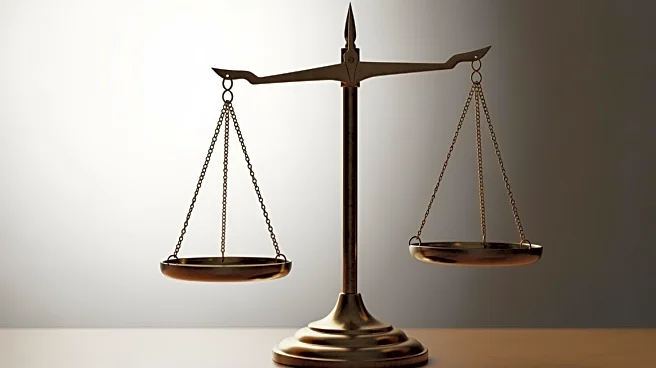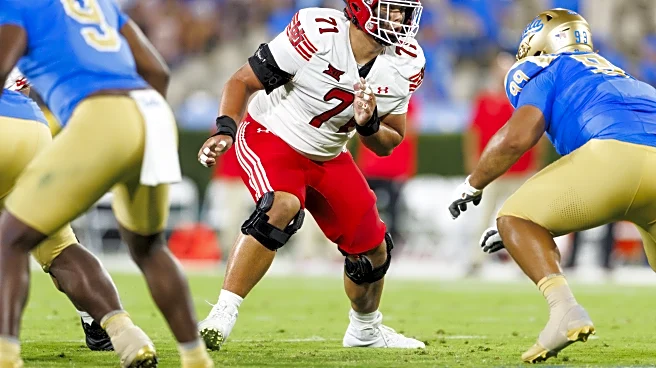What's Happening?
Charlie Javice, convicted of defrauding JPMorgan Chase & Co., has accused the bank of hypocrisy for objecting to paying her legal bills. JPMorgan has requested a Delaware court to cease its obligation
to cover legal costs for Javice and her co-defendant, Olivier Amar, citing the $115 million in defense costs as excessive. Javice's legal team argues that JPMorgan's own hiring of over 50 lawyers from six firms contradicts its stance. The bank's delays in evidence disclosure are claimed to be the main reason for the high defense costs. Javice and Amar were convicted for falsifying user data to mislead JPMorgan into acquiring their student-finance site, Frank, under false pretenses. The Delaware court had previously ruled that JPMorgan must cover legal costs as part of the merger deal.
Why It's Important?
The dispute over legal fees highlights the complexities and financial implications of corporate fraud cases. For JPMorgan, the case represents a significant financial and reputational challenge, as it navigates the fallout from acquiring a company under fraudulent circumstances. The legal battle underscores the importance of due diligence in mergers and acquisitions, potentially influencing future corporate strategies and legal frameworks. Javice's case also draws parallels to other high-profile fraud cases, such as Theranos, emphasizing the broader impact on investor trust and corporate governance standards.
What's Next?
The Delaware court's decision on the legal fees could set a precedent for similar cases involving corporate fraud and legal cost obligations. If the court sides with Javice, it may encourage other defendants in corporate fraud cases to challenge their legal cost responsibilities. Conversely, a ruling in favor of JPMorgan could reinforce stricter controls on legal cost claims in merger agreements. The outcome may also affect Javice's ability to pursue an appeal, potentially altering her legal strategy and future prospects.
Beyond the Headlines
The case raises ethical questions about corporate accountability and the role of legal systems in addressing fraud. It highlights the tension between legal obligations and moral considerations in corporate governance. The extensive legal costs compared to other fraud cases, like Theranos, may prompt discussions on the fairness and efficiency of legal proceedings in high-stakes corporate fraud cases.









